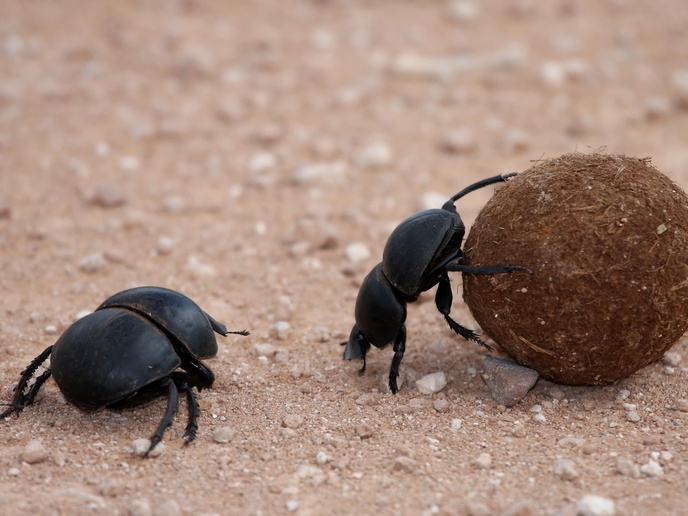Elastic facial fillers inspired by jumping insects may be coming soon
Resilin is a natural rubber-like protein with outstanding elasticity critical to the flight and jumping systems of insects. It is normally disordered; in response to stress, it becomes organised – and elastic. Recently, scientists discovered that they can replicate this behaviour using just a small part of the original peptide. The EU-funded MINIRES project enabled them to pave the way to large-scale production of innovative bioelastomers for the plastics, biomedical, and personal care sectors at a fraction of the current cost.
Reducing the rubbery bounciness of insects to several amino acids
Halogens include fluorine, chlorine, bromine and iodine. Replacing a hydrogen with a halogen (halogenation) is a very important reaction in organic chemistry. Over the last decade, its role in the production of biogels has gained increasing attention. Project coordinator Pierangelo Metrangolo of the Politecnico di Milano(opens in new window) explains: “We focused on a well-conserved repeating unit of seven amino acids in resilin. By strategically halogenating this unit with two bromines, we demonstrated the emergence of a viscoelastic behaviour that resembles that of the full protein and that is not observed in the naturally occurring peptide.” This halogenation led to a more organised arrangement of the peptide, which then allowed it to form fibrils that resulted in a dense hydrogel. The gel, made of the heptapeptide, exhibited viscoelastic and self-healing properties resembling those of the full resilin protein.
Reducing the cost and complexity of production
Metrangolo continues: “Commercially available elastomers are currently large, complex polymers whose elasticity depends on covalent bonding between subunits, usually introduced by chemical or light-induced chemical reactions. In our very short peptide, we rely on physical cross-links created exploiting halogen atoms as ‘sticky’ sites. This simple molecular structure is easy and inexpensive to produce.” Scientists scaled-up the synthesis of the peptide from the lab scale to the 10-gram scale at a cost predicted to be 100-fold lower than that of the full protein production.
A world of opportunity
MINIRES resulted in a patent for the technology. The team has identified three important market opportunities: facial injection fillers and haircare products, thermoplastic elastomers, and biomedicine. The organic personal care and cosmetic products segment is expected to reach USD 19.8 billion by 2022, of which skincare products represent more than 30 % followed by haircare(opens in new window). The serendipitous discovery that the brominated peptide prevents UVA damage enhances attractiveness for skincare. The superior properties and low cost of MINIRES gels could place the group as a global leader in the huge thermoplastic polymer market. Finally, MINIRES peptides could find use in medical devices and bioscaffolds. MINIRES may have finished but innovation and discovery are flourishing. “During the course of the project, we also discovered that our brominated peptide can be successfully combined with other biomacromolecules. New hybrid materials with improved performance and tailored properties will be a focus of future research,” says Metrangolo. The team recently won the 2017 Switch2Product(opens in new window) innovation challenge that provides support to bring innovative ideas to market, and now Metrangolo is revving up to deliver novel bio-inspired macromolecules with finely tuned properties for targeted applications.







